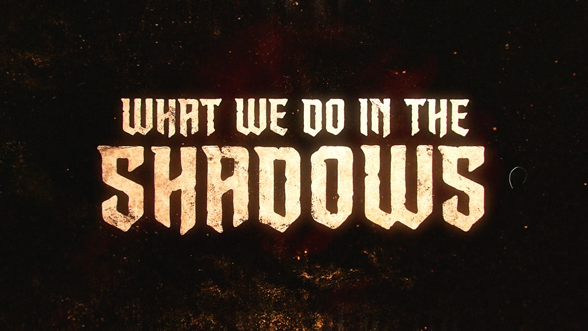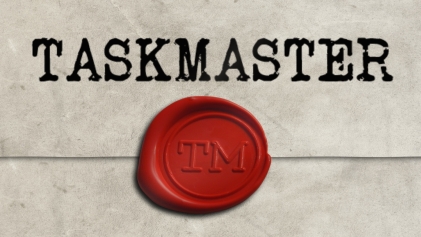The Best TV I Watched in 2021
This article is part of a collection of my favorite media pieces in 2021.
FLEABAG

The British mastery of the mini-series has long been something I wish American studios would take a few notes from. A good story has a well-defined beginning, middle, and end, but Hollywood knows a great story is one that families turn on more for familiarity than narrative, and it’d be optimal if you could squeeze Young Sheldon in there somewhere.
I suppose it’d be rude of me to attribute the success of Fleabag to the British Realm and not to the mind of writer and star Phoebe Waller-Bridge, whose work here redefines the modern antihero story. Her unnamed protagonist doesn’t operate a major drug ring or betray her country; she doesn’t even kill anyone (not directly). Her bad choices are tame by comparison. At no point are viewers led into condoning the poorest of Fleabag’s decisions, but our sympathy is all but unwavering. In the end, I just wanted her to be happy.
WHAT WE DO IN THE SHADOWS

This show created by a Kiwi, set in America and with a half-British starring lineup doesn’t match my prototypical image of an American mockumentary. Dark ideas and themes are regularly cast in the silliest possible light. Virgins are killed and consumed. Demons are summoned on a whim. At one point, a man is decapitated via punching. I loved it. The characters, from Matt Berry and Natasia Demitriou’s bickering and sexually-open Laszlo and Nadja to Kayvan Novak’s naive and non-committal Nandor the relentless, put a new spin on the vampire story, aided in no small part by Mark Proksch’s incessantly-boring energy vampire Colin Robinson and Harvey Guillen’s eternally-fatigued, eternally-faithful Guillermo de la Cruz. What We Do in the Shadows is a sitcom for those of us maybe too familiar with the conventions of the genre. If that’s you, and you’re not immediately averse to dark humor (even then, it’s vampire dark, not… trigger warning dark), it might be worth a shot.
I THINK YOU SHOULD LEAVE

It’s rare for a performer deemed unfit for Saturday Night Live to go on and make a name for themselves in independent sketch comedy. Tim Robinson’s sketches wander back and forth between the more accessible reaches of SNL and the more niche absurdism of Tim and Eric in a way that introduces fans of the former to the latter to great effect. Robinson and a remarkably talented team follow their own passions and I very much hope Netflix keeps renewing their license to do so.
TASKMASTER

Taskmaster was my Raisin winner last year. It’s still one of my favorites and one of the few shows I eagerly await every week. It’s well-produced, it’s funny, but far above all, it’s fun. There’s something contagiously joyful about seeing a group of adults so happy to laugh at themselves that I doubt I’ve ever watched an episode and not felt my mood improve for the rest of the day. Each season is standalone and involves a new cast of British comedians attempting a series of nonsense tasks for the benefit of the viewing public, their performances subject to the judgment of the titular Taskmaster. It was a huge contender for this year’s top honor and it’s my go-to TV recommendation for fans of happiness.
TASKMASTER NEW ZEALAND

Given the already-glistening Taskmaster laurels to rest upon, it’d be easy for a show produced in the comparatively tiny and remote country of New Zealand to do what is easy, especially after American innovations killed any chance of a stateside adaptation getting off the ground. Fortunately, Paul Williams, Jeremy Wells, and their team have been keen to experiment with the formula, and the Kiwi spin they’ve put on their adaptation makes it really shine. As much as I love Taskmaster, some of the hyper-specific, thoroughly-delineated tasks of recent series had left me wondering how much creativity can be squeezed out of the format. Taskmaster New Zealand, particularly its second season, erased those fears entirely. If a country the size of Minnesota can utilize the Taskmaster bones this well, I’m very excited for the franchise’s future.
RAISIN D’OR: BO BURNHAM: INSIDE

In Inside, Bo Burnham doesn’t try to describe the existentiality of the Pandemic era, he encapsulates it with all the honesty he can muster. I remember getting super into Bo’s work ≈ 12 years ago, when its gravity was limited by the edgy humor then in vogue. He contends with his past self here, in a more potent way than in specials and interviews prior, reckoning with who he’s been and who he is against that familiar backdrop of isolated over-introspection. Burnham’s foray into honesty from his original home of edgy and observational comedy started a long time ago and hit pair apogees with his 2016 special, Make Happy, in which he contends with his own anxiety, depression, and relationship with his audience, and his 2018 film Eighth Grade, the most truthful portrayal of the post-2000 middle school experience I’ve ever seen, managing to break Hollywood’s expectation that education hasn’t changed since 1991.
There’s a Salvador Dali quote I read in a crossword recently: “Have no fear of perfection — you’ll never reach it.” Urging myself away from perfectionism is the only thing that lets me get any writing done at all. But once again, Burnham’s own perfectionism and dedication to the craft is on full display as he completes every part of the production process, from writing and performing to audio production and editing, by himself. It must be tempting to obfuscate the wires and nerves, to mask self-doubt with accomplishment, but Burnham does no such thing. In the special, he seems to duel with his own ambitions, recognizing that the impulses that brought him toward his history of on-stage panic attacks are the same ones that are driving him now.
When it came out, I wondered if Inside might be the most perfect depiction of pandemic-era America. Now, as the virus’s domination enters its third year, I’m almost certain it will be. In the interest of temporal agnosticism, mass media has shied away from the virus, preferring to depict stories and ideas that are eternally relevant starring characters unfamiliar with the concepts of mask wearing, vaccine cards, and triple malt Ivermectin. When we do acknowledge the pandemic, it’s through silly bread-baking references and debates about the efficacy of vaccines. We’re so set on normalcy that we resist asking ourselves, and those around us, how we really feel. In one way or another, I think most of us are still trapped inside.
Honorable Mentions
- The Beatles: Get Back
Read the rest of my favorites here.